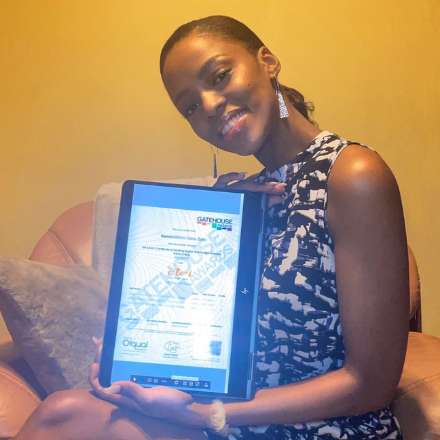Coaching Exam Preparation (IELTS), well what does that mean? IELTS is the world’s leading proficiency test for the English language. It’s an exam that’s normally taken by individuals who need to prove their English language skills, in order to qualify for a job, course of study, visa or scholarship in an English-speaking country.
The fabulous news for TEFL teachers is that Coaching Exam Preparation, especially for IELTS, is one of the top paying areas of TEFL! To reveal all about how to coach IELTS students, IELTS coach and online TEFL teacher Catherine chatted live on i-to-i’s Facebook page with our TEFL jobs expert, Jordan. Watch the full webinar here OR read on for edited extracts of the session.
Training as an IELTS Coach
I did i-to-i’s IELTS course last summer. It’s a 60-hour course and it took me about four weeks to complete, as I was working at the same time.
The course is super helpful. It gives you a full breakdown of the different aspects of IELTS (reading, writing, listening and speaking). It gives you the grading systems, with the grading scores of one to nine. It shows you reasons why students might take the course and what targets they need to achieve to reach certain levels. There are also so many great resources within the course, such as the testing system and IELTS-specific lesson plans.
When you are coaching IELTS students, you need to work very much on a case-by-case basis, as the level each student needs to be at depends on their individual goals. The course looks at how to put together a lesson plan and materials to ensure a student is reaching their set target.
Why students do IELTS classes
Many of my students want to get a visa or scholarship or to go to a certain school or a college in America. There is a lot more riding on an IELTS exam compared to teaching standard English lessons, so the lessons have to be very structured and focused.
In my other TEFL lessons, there is more flexibility about what we cover. Even with Cambridge material, which is structured to a point, there is some flexibility regarding topics.
Coaching IELTS students is very different. IELTS is very structured, it focuses on specific topics and you have got to reach certain goals. You need to be really, really well prepared for your lessons.
Preparing for IELTS classes
Generally, IELTS students are highly motivated. They want to see progression in every lesson, so you have to keep the classes very tailored to what that student needs. Before I prepare an IELTS lesson, I speak to the student to find out their learning needs and if they already have an IELTS score.
If they have not done IELTS before, I might get them to do a practice IELTS test to check their level and then plan the lessons accordingly. A student may come in at Level 3 but needs to be at a Level 7 so you can work out what they need to cover. Alternatively, they may come in at Level 6 and need to get to Level 8, so there is only a small increase. It is really important to tailor the lesson plans to what the student needs.
With my normal TEFL lessons, I always ask what the students’ interests are so I can plan lessons around what interests them. IELTS is a lot more strict as the student needs to reach a certain goal but you can still bring in some aspects of their hobbies and interests to keep their engagement up.
Where to find IELTS resources
The IELTS course includes loads of great information and resources within the course. The British Council and Cambridge English run the IELTS section, so they are the main places to go to for materials online.
Exam English has a lot of IELTS resources for teachers and students and the IELTS website itself also has material for both students and teachers to use.
Once you get used to coaching IELTS, and familiar with some of the materials they give you as examples, you can go online and search for other material and create your own.
How to find IELTS students
The most popular avenue for finding students is through networking platforms like Preply , italki and Cambly, where TEFL teachers advertise themselves and draw in students.
I also found students through Gumtree and there is also a platform called Superprof that you can use. If you have your own teacher website, you can do targeted advertising on Google and reach out and get students that way as well.
Tips for Coaching IELTS
If you want to be an IELTS coach, my top tips are to be super organised and have really structured lessons.
Planning is always key for TEFL but more specifically so for IELTS. In your first introduction meeting, you need to find out a student’s level and whether they have a previous IELTS score or if you need to do a practice test to find out their score. You should also find out what their hobbies and interests are so you can tailor lessons a little to keep them engaged.
You do need to put the time in as there is a lot riding on it for students doing IELTS. If they want a visa or a scholarship, it is really important. They are also paying out money for visa costs or scholarship fees as well as the exam fee.
You need to put in your all, to ensure each student is going to get the best results for them – but it is really rewarding and worth all that effort.
IELTS pay
I have ‘price on application’ for IELTS as it really depends on what the student needs. You will need to put more work in and keep it very strict and focused, so you should definitely charge a higher rate for IELTS compared to standard TEFL classes.
Your exact rate will depend on your experience and what the student’s requirements are. I have my TEFL qualification and a specialist qualification in Coaching IELTS, but I don’t have a teaching degree and only have two years’ teaching experience. You see some people who have an English degree and have been doing it for many years, so they can charge an even higher rate.
You could possibly offer a small discount if a student makes a block booking for 10, 15 or 20 lessons as an incentive to book more. However, IELTS is going to make a big impact on a student’s life, so it is important to charge an appropriate rate that reflects how much work you will be putting in to the classes.
Tips for setting up as a freelance IELTS Coach
My tips for setting up your own business are to show you are passionate, show what skills and qualifications you have, show what kind of teacher you are and what the students can expect to learn. It is about selling yourself and showing how you are different to the other TEFL teachers out there.
You might want to start small and build up. I started by advertising on Instagram, Gumtree and some of the Spanish platforms. I now have a website where people can book all different types of courses direct and I have done a lot of targeted Google advertising and sponsored posts on Instagram to bring students in.
If you do have a website, it’s important to make it as accessible as possible. If people get onto a website and struggle to use it or can’t contact you easily, that is definitely a stumbling block. Make sure you have lots of places where people can contact you and can book lessons.
FIND OUT MORE
Speak to a TEFL expert to find out more about IELTS!
Or book the IELTS course via our website, and start your IELTS coaching journey today!





